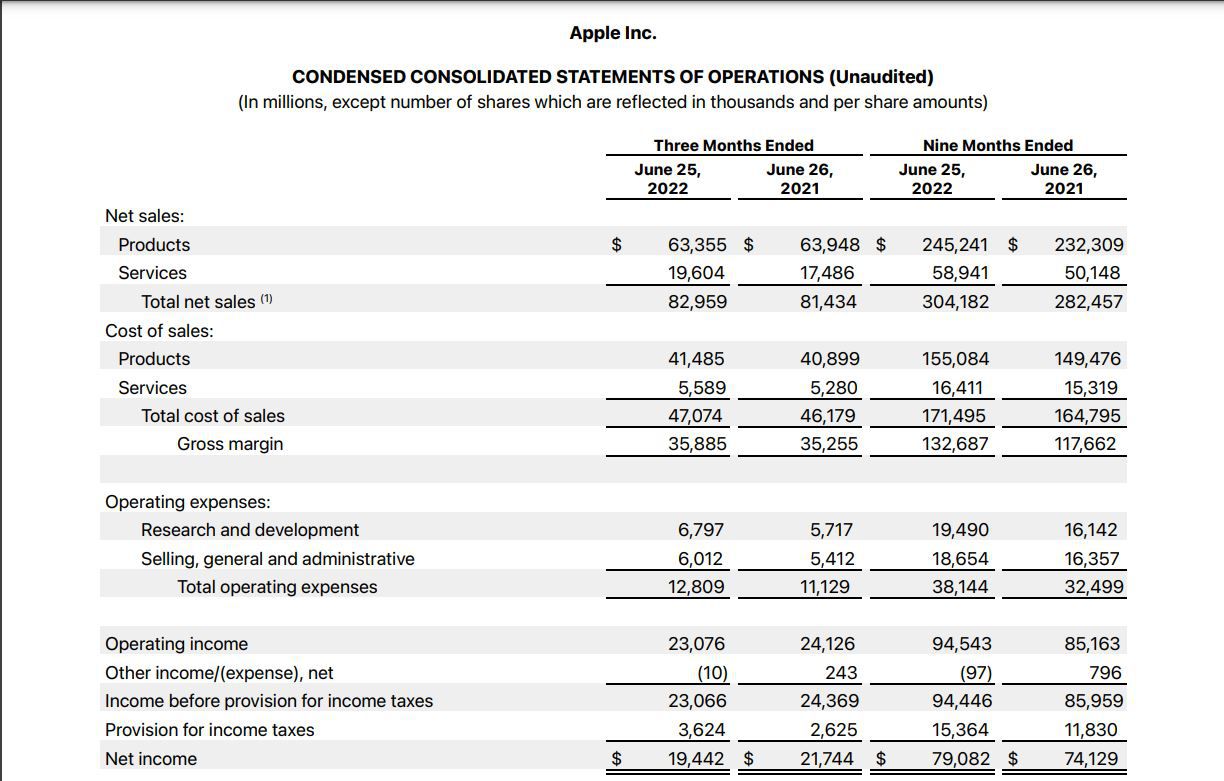Home>Finance>Income From Continuing Operations Defined And Explained


Finance
Income From Continuing Operations Defined And Explained
Published: December 8, 2023
Learn what income from continuing operations means in finance and how it affects businesses. Gain insights into this key financial concept to make informed decisions.
(Many of the links in this article redirect to a specific reviewed product. Your purchase of these products through affiliate links helps to generate commission for LiveWell, at no extra cost. Learn more)
Income From Continuing Operations Defined and Explained: An Essential Guide
Do you find yourself puzzled by the financial jargon thrown around in the world of business and finance? Don’t worry; you’re not alone. With terms like “income from continuing operations” being casually mentioned, it’s natural to wonder what exactly it means and why it is significant. In this blog post, we will demystify the concept of income from continuing operations and help you understand its importance in the world of finance.
Key Takeaways:
- Income from continuing operations is a crucial metric used by businesses to evaluate their ongoing profitability.
- It excludes any one-time or non-recurring gains or losses, providing a more accurate view of a company’s day-to-day financial performance.
Understanding Income From Continuing Operations
Income from continuing operations refers to the net profit generated by a business entity through its regular operations. It measures the financial performance of a company’s core activities, excluding any exceptional or extraordinary events. These events could include gains or losses from asset sales, restructuring charges, or any other non-recurring transactions.
But why is income from continuing operations so important? Well, this metric provides investors, analysts, and stakeholders with a clearer picture of a company’s ongoing profitability. By excluding one-time events, it helps in understanding the true financial health and performance of a business on a day-to-day basis. This information is crucial when making investment decisions or assessing the overall financial stability of an organization.
When analyzing a company’s financial statements, you will typically come across multiple income metrics. These may include net income, operating income, and income from continuing operations. While net income represents the total profit or loss after all revenues, expenses, gains, and losses are accounted for, income from continuing operations focuses solely on the ongoing activities of the business without the noise of exceptional events.
For instance, let’s say a manufacturing company sells a piece of land at a profit in a given year. The gain from this sale would be classified as an extraordinary or non-recurring event and would not be included in the calculation of income from continuing operations. By excluding this one-time gain, investors can assess the company’s baseline profitability more accurately.
The Importance of Income From Continuing Operations
Income from continuing operations is important for several reasons:
- Fundamental Evaluation: It allows investors and analysts to assess a company’s standalone profitability from its core operations, helping them make informed investment decisions.
- Benchmarking: By excluding exceptional events, income from continuing operations provides a reliable metric to compare a company’s performance to industry peers. This comparison can reveal whether a business is performing above or below average.
- Inter-period Comparisons: Since it focuses on ongoing operational activities, income from continuing operations offers a consistent basis for comparing a company’s financial performance across different periods, facilitating trend analysis and forecasting.
- Financial Reporting Standard: Income from continuing operations is a standard metric required by accounting principles, ensuring consistency and comparability in financial reporting across different companies.
By considering income from continuing operations along with other financial indicators, investors gain valuable insights into a company’s ability to generate consistent profits over time. It provides a more accurate representation of the company’s performance and helps investors make informed decisions that align with their investment goals.
Next time you come across the term “income from continuing operations,” you can confidently navigate the world of finance knowing that it is a crucial metric to evaluate a company’s ongoing profitability.
Remember, understanding the fundamental concepts of finance empowers you to make better financial decisions and navigate the complex world of business with confidence.














